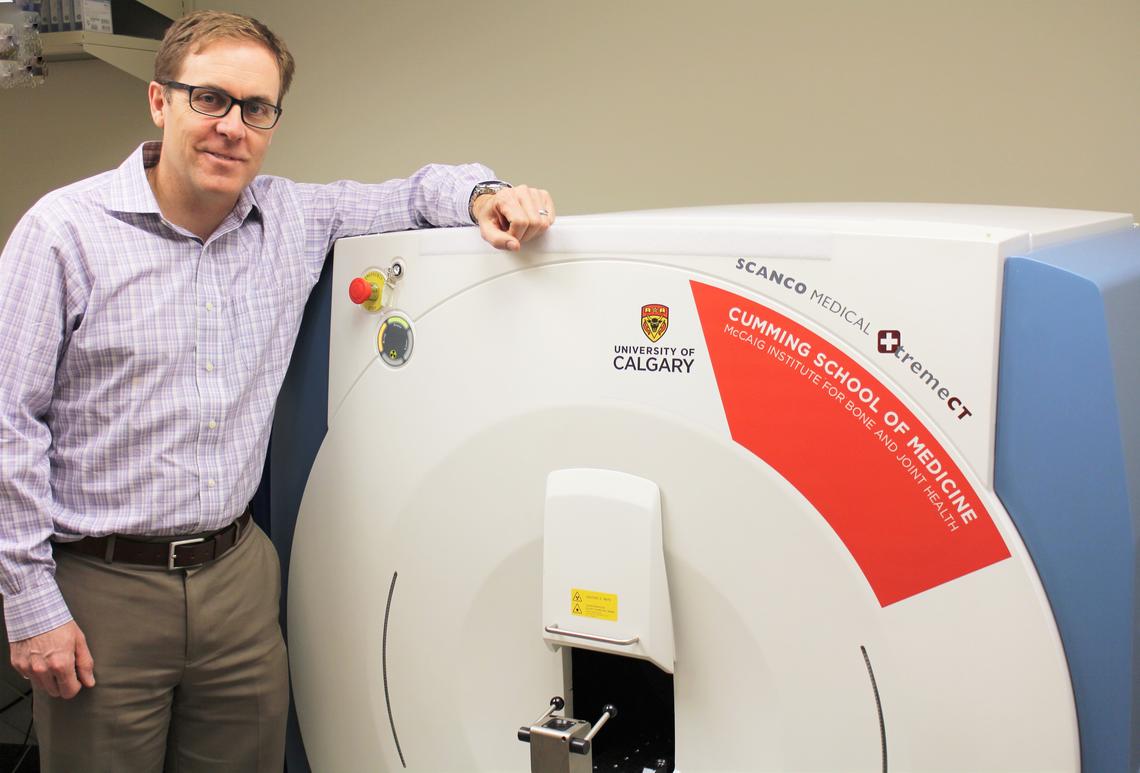Dec. 16, 2015
Researchers study effect of space flight on astronauts' bone health

Steven Boyd, PhD, a researcher at the university’s McCaig Institute for Bone and Joint Health.
Two astronauts participating in a University of Calgary research study launched for the International Space Station on Dec. 15.
The astronauts are part of a study by Steven Boyd, PhD, a researcher at the university’s McCaig Institute for Bone and Joint Health. The study, dubbed “TBone,” is sponsored by the Canadian Space Agency (CSA) and will assess the effect of space flight on bone quality using a new 3D imaging technology called HR-pQCT. This type of bone scan measures bone density and structure, allowing scientists to distinguish changes to bone health and strength that can occur in microgravity or extended periods of immobilization.
Scanning astronauts before and after flights to assess changes
Boyd and his colleagues, including Paul Hulme, PhD, scientific coordinator, have been flying to NASA’s Johnson Space Center in Houston, Texas on a regular basis to conduct the astronaut measurements before the space flights using a scanner that was installed specifically for this project. Scans will then be repeated when the astronauts return.
“It is really exciting for my team to witness our first two subjects set out for the International Space Station,” says Boyd. “It has been a great experience for all of us to be part of the CSA and NASA teams and we’re looking forward to the astronauts’ safe return in six months to see if there are any discernable changes in their bone structure and how they recover over the following year.”
Boyd is a professor in the Cumming School of Medicine in the Department of Radiology and holds a joint position with the Schulich School of Engineering and the Faculty of Kinesiology. He is a member of the McCaig Institute for Bone and Joint Health, and is an Alberta Innovates - Health Solutions Senior Scholar. He also holds the Bob and Nola Rintoul Chair in Bone and Joint Research.
Data-sharing with NASA scientists to inform future voyages
Analysis of the data collected will be done at the McCaig Institute for Bone and Joint Health. The study will also make use of data-sharing with NASA scientists to access data from blood and urine samples, as well as in-flight food intake, medication, supplements and exercise. It’s anticipated that the information gained from this study will help inform what happens in even longer duration voyages, such as future Mars missions.
NASA Television provided full coverage of the Soyuz spacecraft launch from the Baikonur Cosmodrome in Kazakhstan. Watch footage of the launch and docking online.
